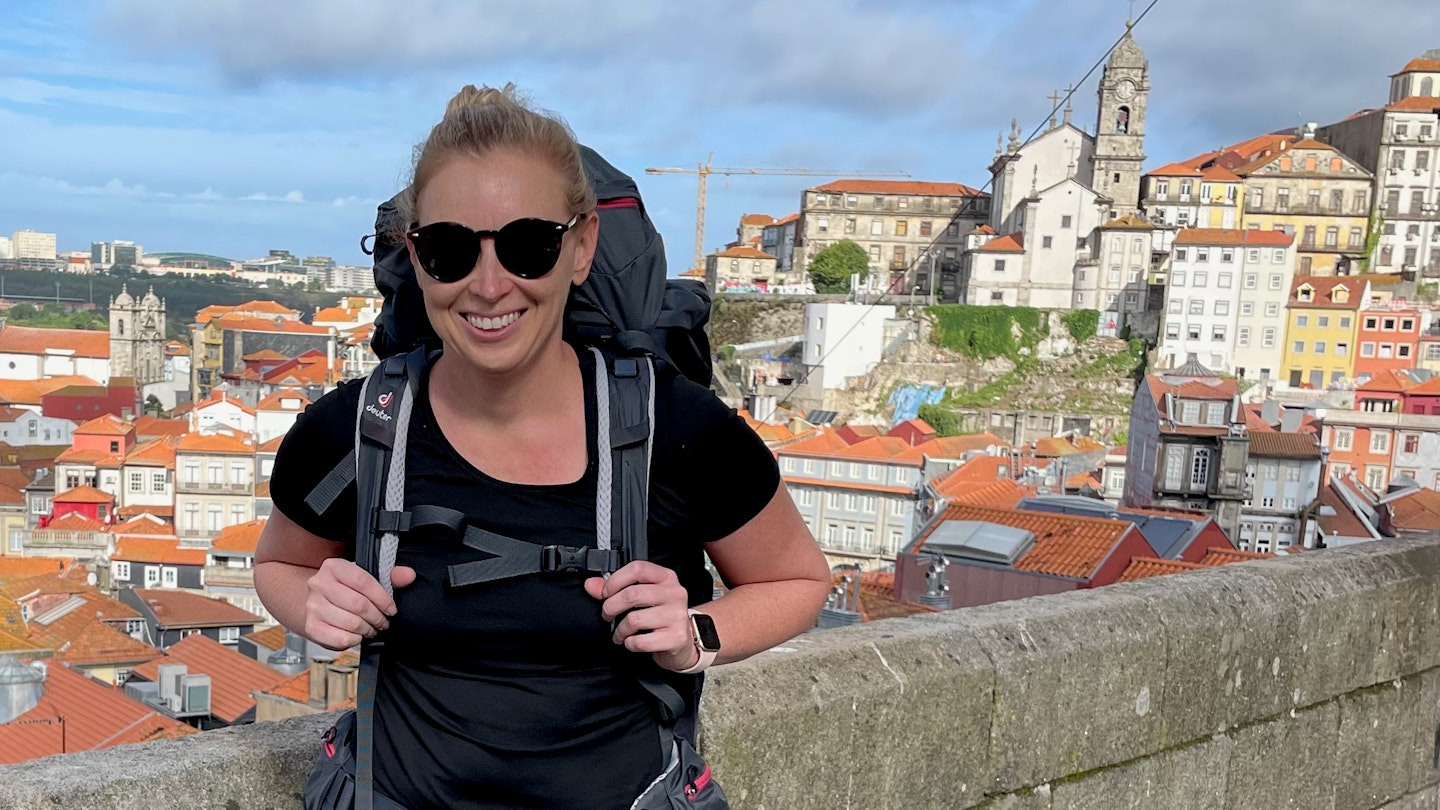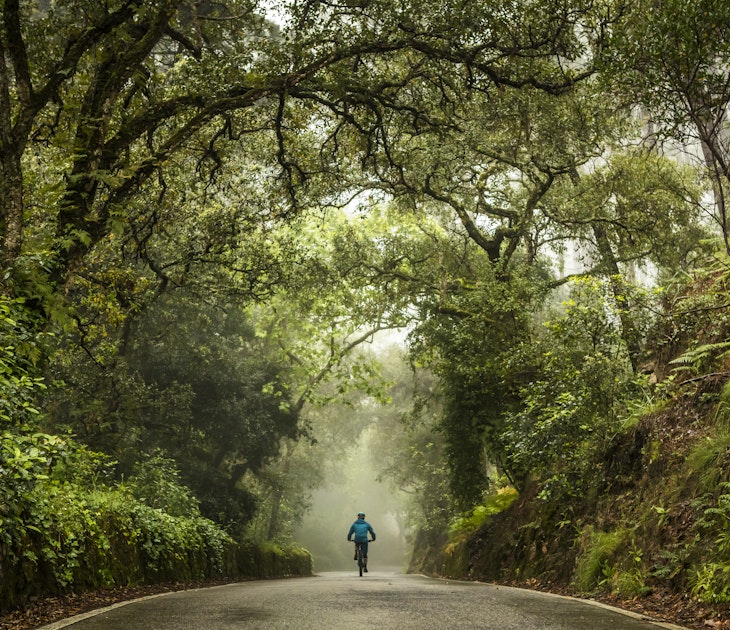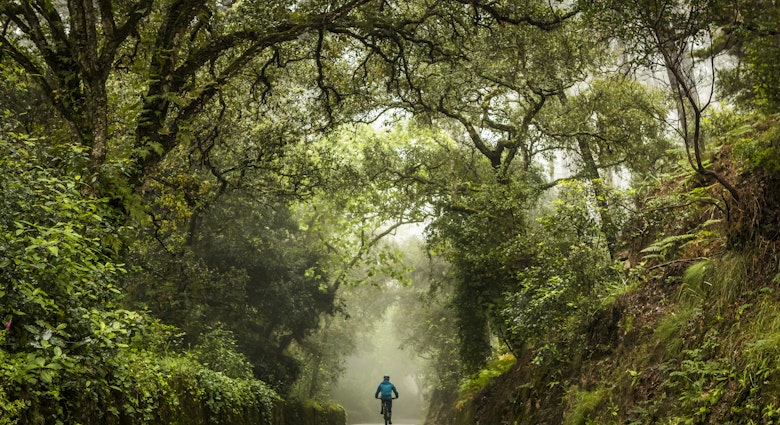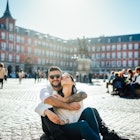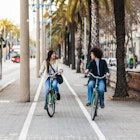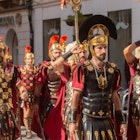While the global pandemic halted travel, I dreamt of spending weeks walking the Camino de Santiago through Spain. In early June 2022, I finally made that dream a reality, following the Portuguese route from Porto to what is believed to be the resting place of St. James the Apostle in Santiago de Compostela during one of the busiest years on record.
A sweaty, stinky, sloppy, exhausted mess, gripping the cardboard tube holding my Compostela, I ended the pilgrimage in front of the desk clerk at my luxury hotel hopeful one last time that, as pilgrims say, “the Camino would provide.”
I had arrived hours before check-in but I prayed they could find me a room as soon as possible so I could get a much-needed shower, nap and food — in no particular order of priority.
My rough condition was the result of a 260 km (161 miles) journey following the Portuguese Way through Portugal and Spain, an adventure I took on with my 45+10L Deuter backpack filled with just the necessities.
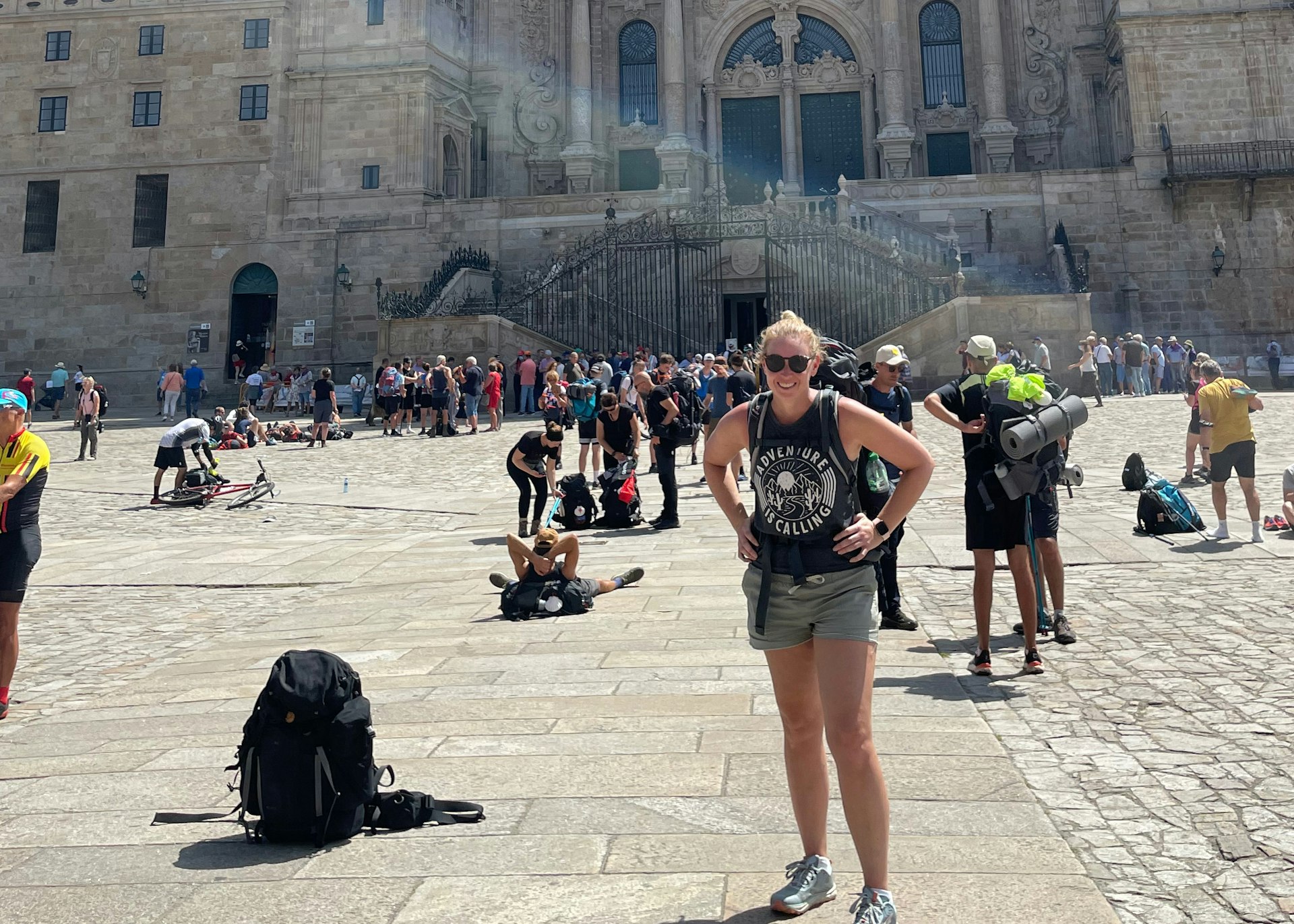
Though traveling by myself I was far from alone on this journey. The centuries-old religious pilgrimage route has always beckoned pilgrims but is doing so in record numbers this year, perhaps best illustrated by the fact that in my sorry state, as the desk clerk continued to work to find me a room, a guy in the lobby walked up to me to ask if I had just finished the Camino de Santiago. "I’ve always wanted to do it. How was it?"
Why is it so busy this year?
Dating back to the 9th century, the Camino de Santiago is a pilgrimage to what is believed to be the final resting place of Saint James the Apostle. Though the length of each path is different, all are hundreds of miles long and eventually weave through Spain to the Cathedral in Santiago de Compostela where you can visit the remains of the apostle.
The rise in the number of pilgrims this year is easily attributable to it being a Holy Year for Saint James, where the Cathedral’s Holy Door is opened and those who make the trek and walk through the door are granted a plenary indulgence. And, like all travel, it’s the first summer where this journey has been “safer” following mass vaccination, and thus we’re seeing a rebound of two years of postponed travel plans.
On the day I arrived, the Oficina del Peregrino which issues the official Compostela certifying a pilgrim has completed the required kilometers for the pilgrimage, recorded 1442 pilgrims arriving. A spokesperson for the Cathedral told me that on some days this summer, the Oficina has issued more than 2,000 Compostelas, far outpacing any other years on record.
But along with those factors, I wonder if the Camino is also drawing in more pilgrims this year because it offers us so much of what we’re looking for in our travel after the pandemic lockdowns: a chance to slow down and travel more intentionally.
Which Camino de Santiago route is right for you in 2022?
Why I chose the Camino de Santiago
My personal intrigue about the Camino de Santiago first sparked in 2018 when I was living in Berlin. On a lazy Saturday, I was looking for something to watch on German Netflix when I came across the movie “I’m Off Then” based on the book by German comedian Hape Kerkeling.
When the pandemic hit two years later, in the middle of full lockdown, the memory of that movie and the Camino crept into my mind, romancing me for being all the things I couldn’t do at the time. How wondrous would it be when the pandemic subsided to spend several weeks just walking across Europe, meeting strangers who would become new friends, staying in the Albergues and guest houses along the way. Eating food communally together.
It was everything I missed about travel, the casual conversations you have and the relationships you make with people through your shared visit to another country. It had the added bonus of hiking from town to town, giving me a chance to experience a pastime I enjoyed while also seeing Spain beyond the metropolises of Madrid and Barcelona.
During lockdown, I bought Hape’s book in English. After that, I watched The Way with Martin Sheen and Emilio Estevez. I devoured The Pilgrimage by Paulo Coelho.
The Camino became my pandemic-fueled obsession. When I felt sad, bored or lonely, I researched itineraries. I crafted budgets. I read reviews for gear. I made lists in Google docs.
I made what felt like a very self-interested promise to God and myself. When it was safe to travel again, I would go do the Camino.
Why I chose the Portuguese Way
Two rounds of Pfizer, a booster and two years later, I landed in Porto, Portugal, with my thus unused Deuter backpack which I had purchased from REI in 2021 but had weathered a year of false starts to travel, tags still on in my closet.
The Camino de Santiago has several different paths, the most popular being the French Way which starts at Saint Jean Pied de Port in France and is nearly 800 km (500 miles) long. Second most popular is the Portuguese Way which starts in Lisbon (though most people start in Porto) followed by the Norte which follows the northern coast of Spain.
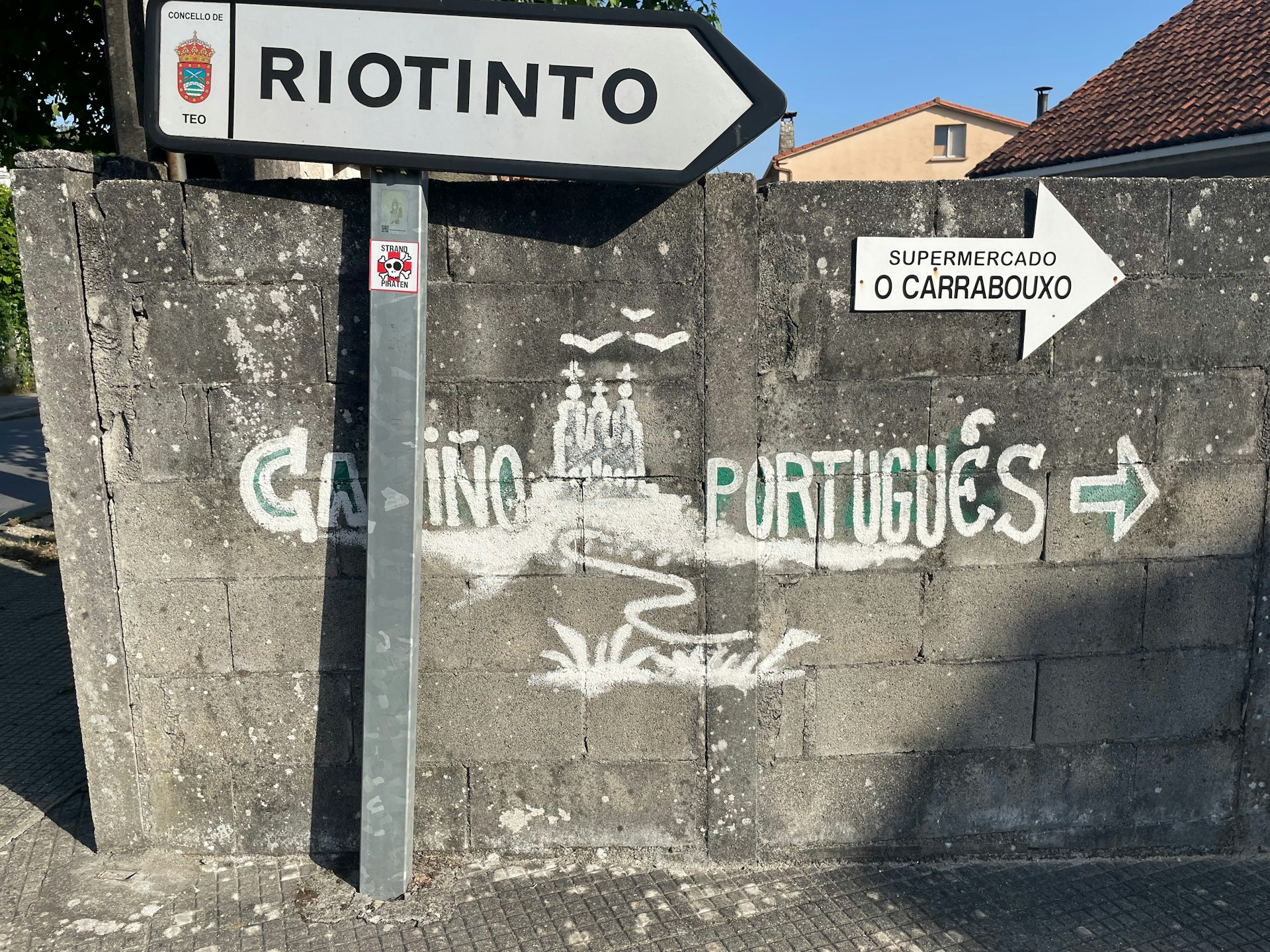
You can follow any of them to Santiago, the only requirement is you must do the last 100 km by foot (200 km if you go by bicycle) to get a Compostela. Each step of the way, you have your Pilgrims Passport stamped to prove you made the trek.
After some decision paralysis on which route to choose, I finally settled on the Portuguese Way. I could start in Porto, a city I’d long wanted to visit while experiencing the beauty of both Portugal and Spain. Also, I was less intimidated by the prospect of 161 miles over 14 days (including some rest days) for the experience compared to more than a month to walk the entire French Way.
What is it like on the Portuguese Way in 2022
The flux of travelers did have an impact on my trip. By the time I started my journey on the Portuguese Way on June 1, the route was already buzzing with Pilgrims.
The planner in me was thankful I booked my accommodations for much of my trip in advance as in the few spots I hadn’t booked (to give me some flexibility in the journey), I ended up scrambling to find a spot. I always found one, though sometimes it was not my first choice of accommodation. The Camino after all provides.
I met a diverse group of Pilgrims along the way, ranging broadly in ages, nationalities, body types and paces.
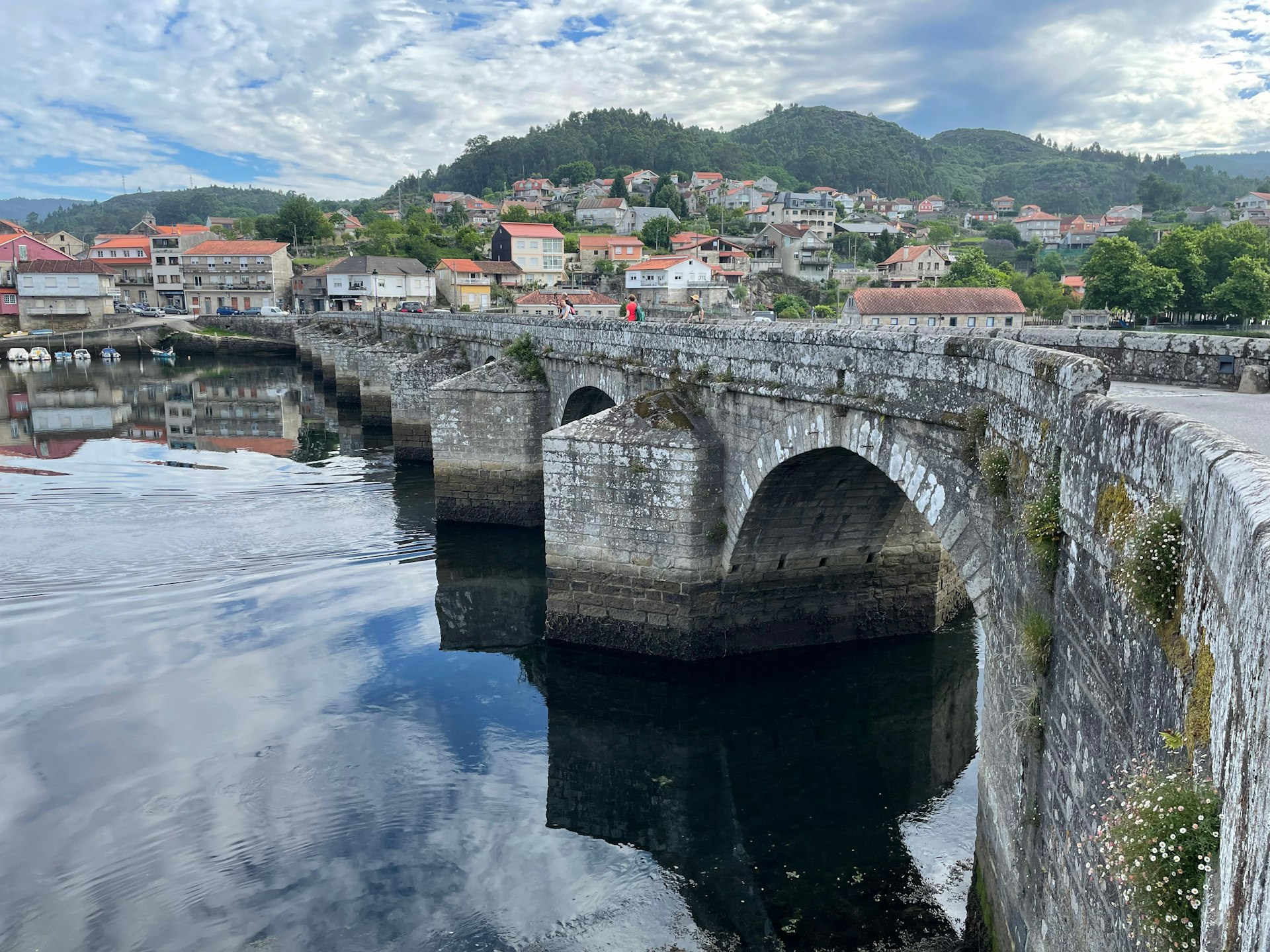
This pilgrimage gives everyone passionate about pursuing it the opportunity to make it their own. You can choose where you want to start, the total distance you want to walk, how many kilometers to cover each day, whether you want to carry your backpack or have luggage transported to the next stop.
Pilgrims will walk different total and daily distances. Some will need to skip parts of the journey by taxi or bus. People will be on different budgets ranging from austere to lavish.
It is your Camino. Don’t compare yourself with anyone else.
How many kilometers/miles did I do a day?
For my Camino, I was conscious of the 8 kg (18 lbs.) pack I was carrying and the possibility of overuse injuries, something that plagued me when I ran a marathon some years ago.
I tried to limit myself to around 20 km even though my days ranged from 12 km (8 miles) on my shortest day to 24km (15 miles) on my longest. I took one much-needed rest day (and if I had a do-over, I would have added another earlier in the trek).
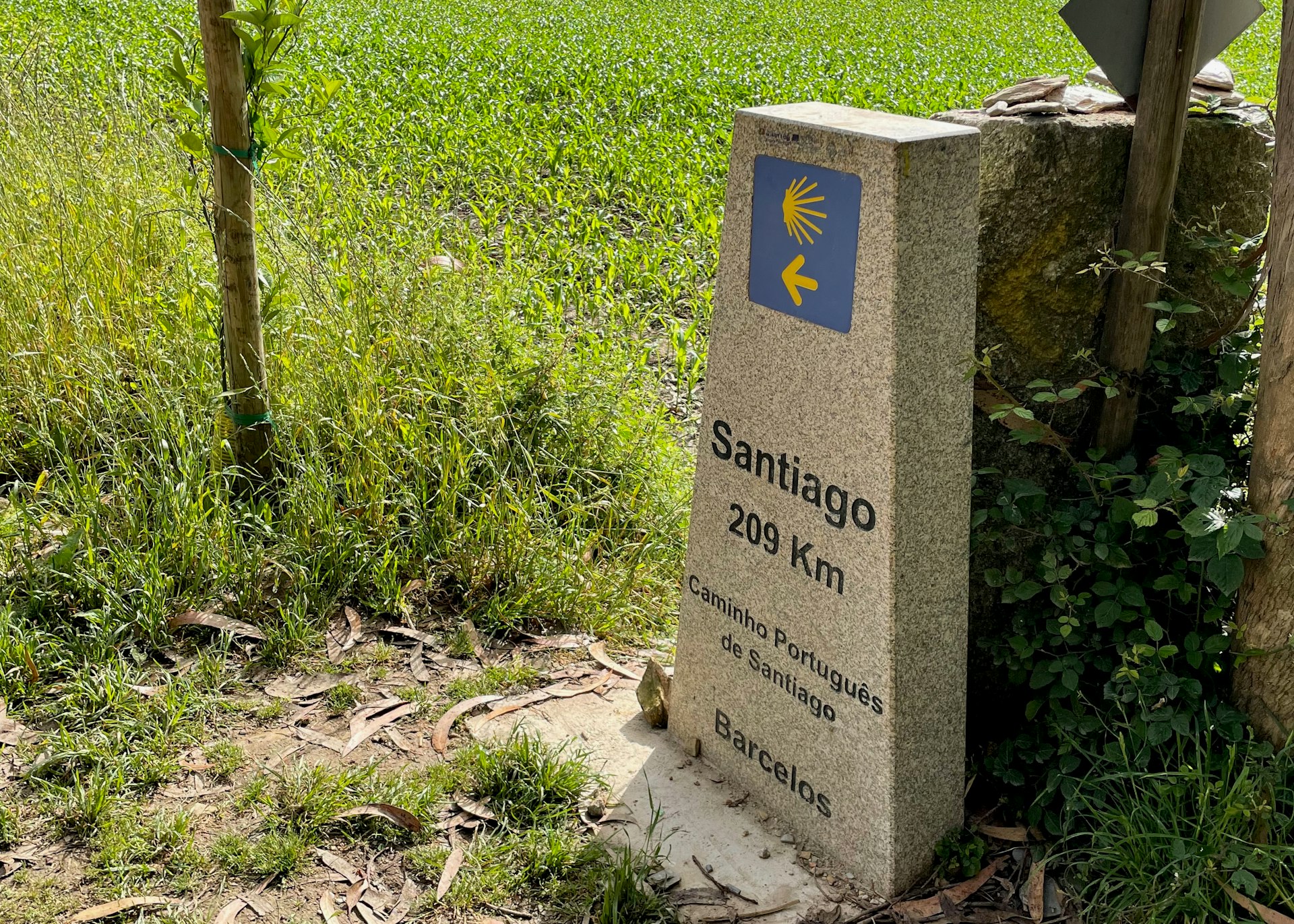
It’s up to you to listen and figure out what works for your body. If you’re thinking of taking it on, I’d urge you to be completely realistic about your limitations to make the journey enjoyable. I met a couple from the U.K. who were in their 70s walking their second camino. They planned their trip with fewer kilometers a day (and a couple bus rides to skip parts that were too strenuous) and planned to do the trek over 17 days.
What’s the point in rushing, the wife mused to me. She wanted to enjoy the journey.
For myself, I anticipated the trek being difficult, but the ways it ended up being hard were unexpected. I hike often in my home of Arizona but there’s no way I could have prepared for the cobblestones. These destroyed the balls of my feet until I had the good sense to stop at the Farmacía for some better gel inserts.
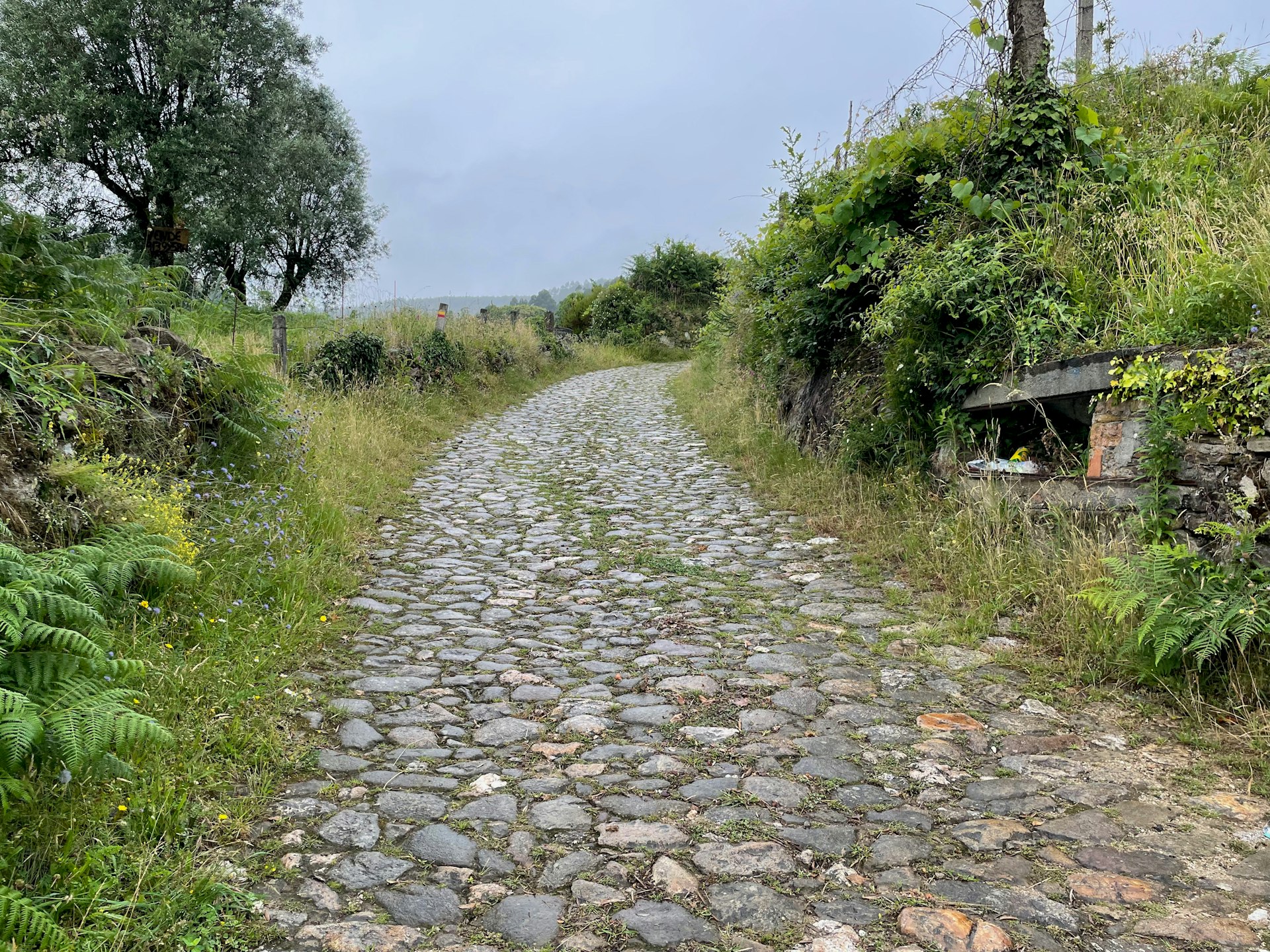
Though I did a great job planning my daily mileage, it was the slog of getting up to do another day of it while hoping the socks I washed the night before dried overnight.
Still, as I mentioned before, there’s that phrase that’s thrown around that “the Camino provides.”
And for me, it was true. Whatever I needed to finish the pilgrimage, I seemed to find it not long after I had envisioned the need. New socks. Ibuprofen. Gel inserts. A trash can, restroom or café at the right moment. I heard choir music one Sunday as I walked through a vineyard. I encountered more than one person playing Galician bagpipes called Gaita. The Camino provided.
Would I recommend a Camino?
Arriving in front of the Santiago Cathedral, a wave of conflicting emotions rushed over me, swinging from being thrilled I had finished to equally sad that the journey I had planned for so long, and had kept me company through the challenges of the pandemic, was over.
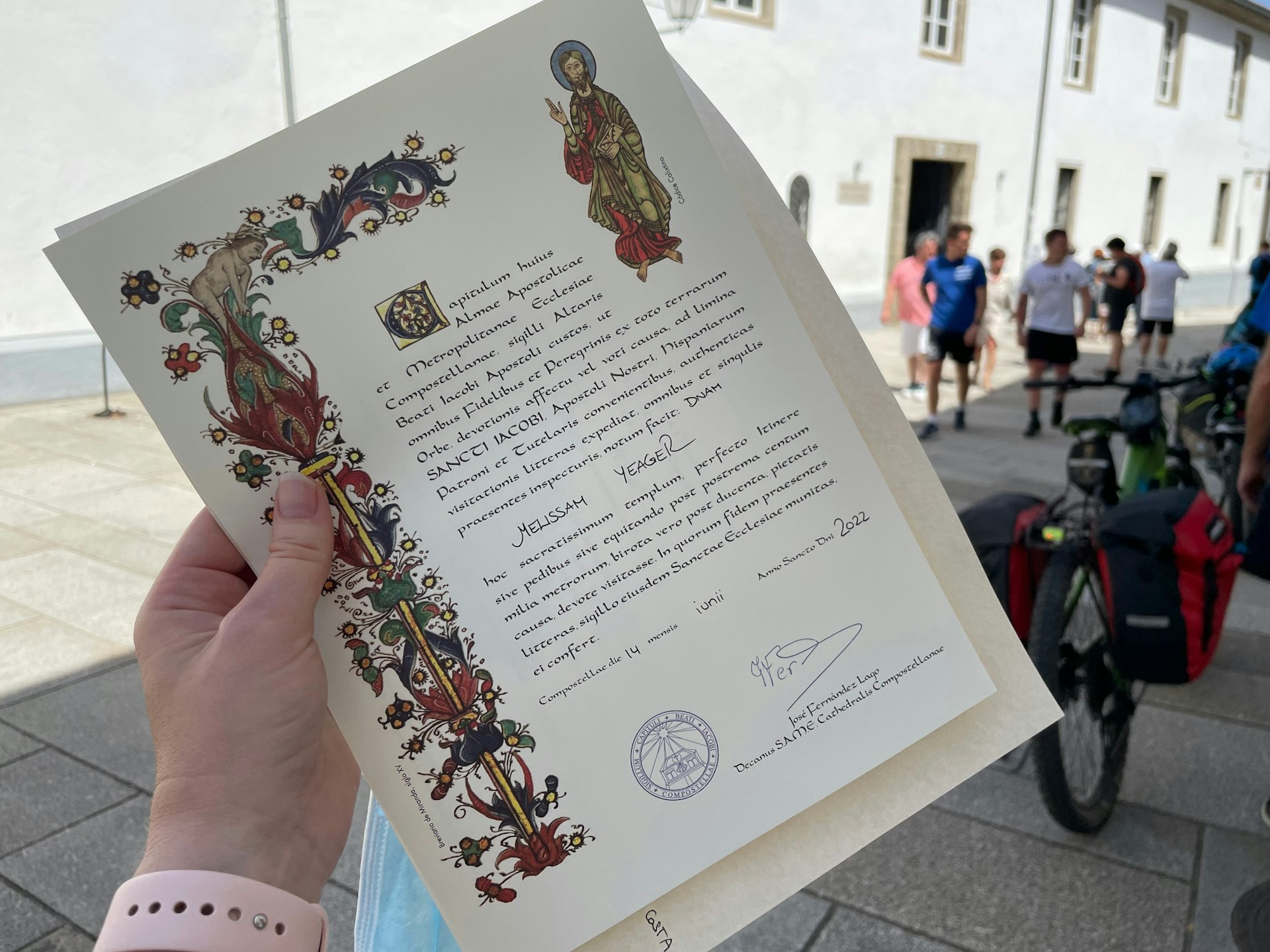
I failed to end the pilgrimage with some great epiphany or newfound direction for my life. I honestly just felt a heart full of gratitude.
Perhaps that's what the Camino ultimately provided me, a chance to slow down and reflect on this one great life we're given. The journey by foot was meditative, forcing me to slow down and connect with the communities I passed through, and the people walking beside me, many of whom I'll never see again.
In Santiago, my eyes filled with tears proud of the accomplishment but also thankful for the gift of going on a really, really long walk.
And perhaps that’s why as an exhausted, smelly mess but with a full heart, I joyfully answered the man in the hotel lobby’s questions until the desk clerk interrupted to tell me my room was ready.
One last time, the Camino provided.

